We’re here to tell you what’s hot and what’s not on this week’s music roundup
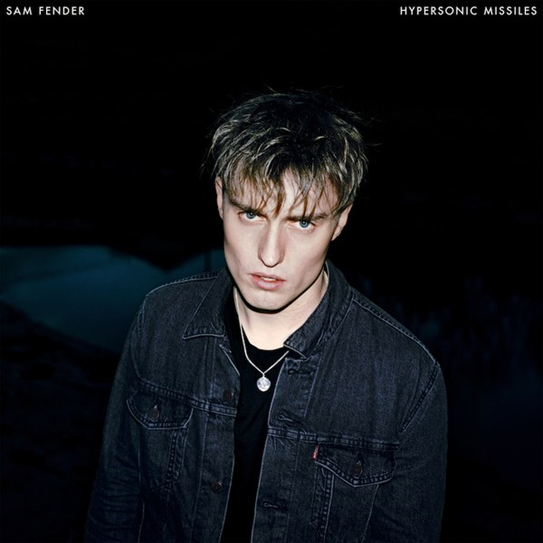
Sam Fender – HYPERSONIC MISSILES
Genre: Heartland Rock, Indie Rock
Favorite Tracks: “Hypersonic Missiles,” “That Sound,” “Saturday”
I’m just as sick of thuddingly obvious Bruce Springsteen comparisons as you are, so I won’t make any. I’ll just say that Sam Fender is an overly earnest singer-songwriter with a blend of the synthetic and organic who trades off between restless youth life in small-town England and political commentary. His music even features a saxophone, for God’s sake! However, with his wiry guitars, higher-pitched, more frail voice, and earwormy punk rhythms, Fender is more akin to a Ted Leo or The Killers circa SAM’s TOWN. HYPERSONIC MISSILES, his debut record that featured seven (!) singles, is at its best when it captures a similar nervy tension to Leo’s best work, as well as a sense of catharsis from the horror show of modern day Britain. The post-chorus drop of shrieking, curdling feedback fills on “The Sound” is horrifying and hints at post-punk textures I wish were explored more, and the dramatic, choppy cadence and resonant guitar tone of “Saturday” matches the sentiment of losing your mind if the end of the week doesn’t come quickly.
Fender certainly knows his way around an instantly memorable hook, especially on the title track, but a lot of his good intentions and ambitious song concepts are ill-managed. “Two People” tries to capture the cycle of violence and domestic abuse in Fender’s small town that he witnessed as a teen, but instead of directing the hook at himself and how helpless Fender feels as a passive observer, it insteads targets the victim for sitting there and burning in his fire. Similarly, “White Privilege” plays the both-sides card, attacking “smug liberal arrogance” and framing himself as a passive observer without enough of an indication if the song is a joke or not. Lyrical issues would be easier to digest if the music was better, but the songs often meander and wait until the halfway mark to come into their own and the production is thin and dry even when it tries to flesh out the compositions. The tapping drum machine of “You’re Not the Only One” and “Dead Boys” are superfluous, the keys are sharp and louder than anything on the second verse of “Will We Talk?,” and the potential menace of the creeping rhythm of “Play God” is ruined by too many clean vocal layers and multitracking. The album cannot decide between post-punk unease and anthemic swell, and while Fender gets points for directly addressing topics like Brexit and Gaza that you normally don’t see in mainstream-adjacent rock, he needs to decide between these two sides or else his future endeavors will continue to disappoint. [Blake Michelle]
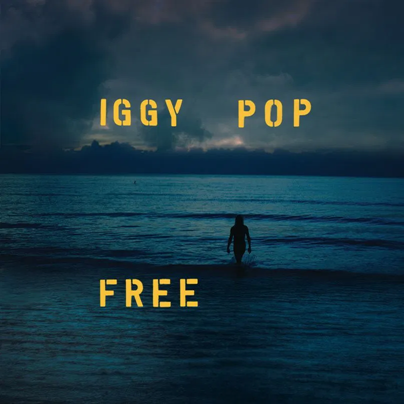
Iggy Pop – FREE
Genre: Art Punk, Jazz
Favorite tracks: “Love’s Missing,” “We Are The People,” “Do Not Go Gentle Into That Good Night”
FREE is a new album featuring Iggy Pop—at least that is how I am choosing to describe it. It feels less disappointing than saying it is the newest album from rock and roll icon Iggy Pop, but that’s only because it’s not a very good album. After finding himself exhausted from his excellent record POST POP DEPRESSION, Iggy decided he wanted to take it easy and step back, lending only his voice to an album written by Noveller and Leron Thomas. The music on FREE is actually pretty good. In fact upon listening to the first few tracks, I was bold enough to think that maybe Pop was going for something more elevated, art akin to his late friend David Bowie’s masterpiece BLACKSTAR. “Love’s Missing” sounds like Bowie’s “Valentine’s Day” from THE NEXT DAY, with its simple, catchy bass and sharp, slightly crunchy guitars; it was one of the few tracks from Thomas and Noveller that was a solid offering worthy of Pop’s presence. “Sonali” was also musically interesting, but Pop struggles to make his contributors’ wordy lyrics fit within each measure. Any comparisons to the vibes of BLACKSTAR end promptly with album single “James Bond”; corny in all the worst ways, the track finds Pop delivering terrible lines from Thomas like “nuts melt in her mouth / but not in her hand / no need to figure it out / she just likes M&Ms.” It only gets worse from there as Pop sings about cocks and butts on the cringe-inducing “Dirty Sanchez,” another Thomas-penned tune. Iggy can get away with a lot being one of the coolest 72-year-old men on the scene, but I just can’t give him this one.
The most interesting tracks on FREE are the final three pieces, which are basically spoken-word over minimal music beds. “We Are The People” is a poem by Lou Reed that seems somewhat culturally relevant and feels powerful delivered in Pops smooth yet gravelly speaking voice. He then goes into Dylan Thomas’ classic “Do Not Go Gentle Into That Good Night,” and it is the most emotional performance from Pop on the record. The album closes with a Noveller-penned poem, “The Dawn.” Again, Pop’s delivery is great, and the simplistic synths suit the mood perfectly. But other than these final tracks, FREE is mostly a dud. I was somewhat relieved when I found out Iggy did not write any of these lyrics, thinking that I didn’t have to hold him fully accountable for FREE’s failures, yet still there is still a part of me that wishes the man would have said “No” more than a handful of times in the writers’ room for this one. [Jake Mazon]

Sleater-Kinney – THE CENTER WON’T HOLD
Genre: Indie Rock
Favorite Tracks: “Restless,” “The Dog/The Body”
I really wanted to like THE CENTER WON’T HOLD, the second post-hiatus release from Sleater- Kinney. When the group composed of Carrie Brownstein, Corin Tucker, and, until just recently, Janet Weiss, announced that they considered having Jeff Tweedy produce their latest effort before deciding on St. Vincent’s Annie Clark, my interest was definitely piqued. Even when I saw that long-time drumming powerhouse Weiss announced her departure just about a month before the album’s release date, citing that the band were moving in a “new direction,” my interest was somehow even further elevated: Could this change of direction really be so drastic?
I don’t know if drastic is the right word, but it’s definitely not great. The opening title track suggests that there might be some kind of interesting commentary on society’s current situation, but that’s not really the case. That song finds Brownstein delivering a faux-punk manifesto in her trademark whine while Tucker tunefully repeats the song title over a music bed that could be an industrial loop on Garageband—having Brownstein handle a majority of the vocal duties, when she is definitely the weaker singer when compared to Tucker is certainly a major detractor across the album. Clark’s influence is clearly evident in the music, from the sparse, fuzzy guitar leads on “Can I Go On” and “Reach Out” to the bass synths and affected vocals on the strangely interesting “RUINS.” Gone is the interesting interplay of Brownstein’s and Tucker’s guitar playing. The only thing that comes remotely close to the group’s guitar glory days is “Restless.” In all honesty, it’s not the most complicated or technically impressive guitar work, but the track has a sense of openness that is absent on an album that fills space with unnecessary electronic flourishes and random vocal yelps.
There were several times throughout the record that I thought it sounded similar to St. Vincent’s MASSEDUCTION but with bad lyrics; two of the worst offenders come in the lines “Everyone I know is happy / but everyone I know is napping” from “Can I Go On” and “tuned it down to C / turned the amp to 10” in “LOVE,” which is intended to be a heartfelt retrospective on the forming of the group. I’ve always had a profound dislike for songs about how songs get written, and that’s on me, but something feels a little cringey considering Weiss’ departure following the making of this record. The new direction she identified in her resignation comment is one that follows simple and straightforward song structures at mid-range tempos that offer her little opportunity to fill space with interesting beats. Any of the tracks on THE CENTER WON’T HOLD could have been more than adequately handled by programmed beats that would have fit the electronic feel of most of the tracks. There is a palpable disconnect from simple pop arrangements that aim to reach a wider audience and the painfully contrived lyrical attempts to maintain any semblance of edginess that the band once possessed. If THE CENTER WON’T HOLD is a step in a new direction for Sleater-Kinney, it does not feel like the right direction. [Jake Mazon]
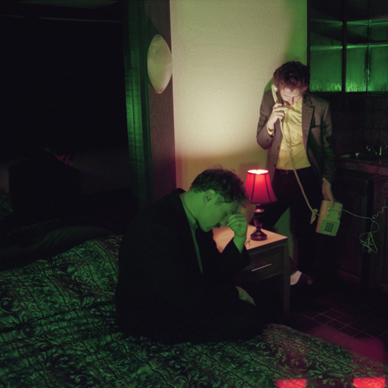
Surf Curse – HEAVEN SURROUNDS YOU
Genre: Beach Goth
Favorite Tracks: “Disco,” “Hour of the Wolf,” “Safe,” “Memory”
Surf Curse’s steadily rising star may still be slightly dimmer than that of contemporaries and fellow beach goth posterboys The Growlers, but with HEAVEN SURROUNDS YOU that may not be the case for long. Their longest and perhaps most polished release to date, Surf Curse feel surprisingly bold on their latest effort, a long ways from the messy-yet-charming lo-fi garage rock they were churning out on their debut. Mostly gone is the Black Lips-lite facade that they cut their teeth on, their latest finding them further exploring the darker pop edges and mysterious stupor of 2017’s NOTHING YET. While Surf Curse remain a rock band, hardly trading in their Burger-adjacent ramshackle for sparse bedroom pop like The Drums did, they’ve mastered hooks on HEAVEN SURROUNDS YOU, like the oddly hypnotic refrain of “I’ve been living like a midnight cowboy,” or the nostalgic wonderment in Nicholas Rattigan’s upbeat chorus “It’s just a distant memory.” Even musically, from the host of female vocals at the end of “Trust” to guitar layering on the lighter mid-tempo “Opera,” they’re taking chances that deliberately push them away from short, scuzzy garage rock and towards lush, cinematic crooning. The duo call HEAVEN SURROUNDS YOU a coming-of-age story, and more than their previous releases, you can feel a slowly building tonal arc throughout the record, the constant references to our fleeting memories making the record a tragic, if perhaps occasionally hopeful, navigation of love and youth and attempting to grow up. Rattigan and Jacob Rubeck get specific with lines like “And we sang every Pavement song we could / And your Malkmus was just so damn good” (“Distant Memory”), “You were always good at changing mine / At the opera house in the pale blue light” (“Opera”), and the fleeting moment of optimism “We hit the bar and any place with a dance floor / We sing our songs and let our memories unfold” (“Jamie”). Rattigan in particular, with both Surf Curse and Current Joys, has nailed the maligned movie-like haze of trying to contextualize moments of your life as you live with them, and how dramatic that feels. That their gothic surf rock template endures make Surf Curse feel continually fresh and unique, and HEAVEN SURROUNDS YOU is the groups finest achievement yet. [CJ Simonson]





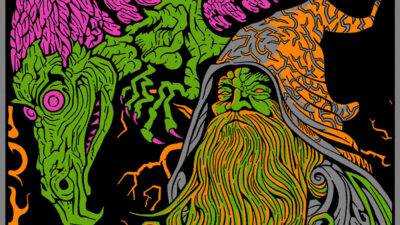



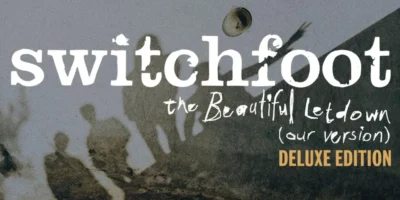






Comments